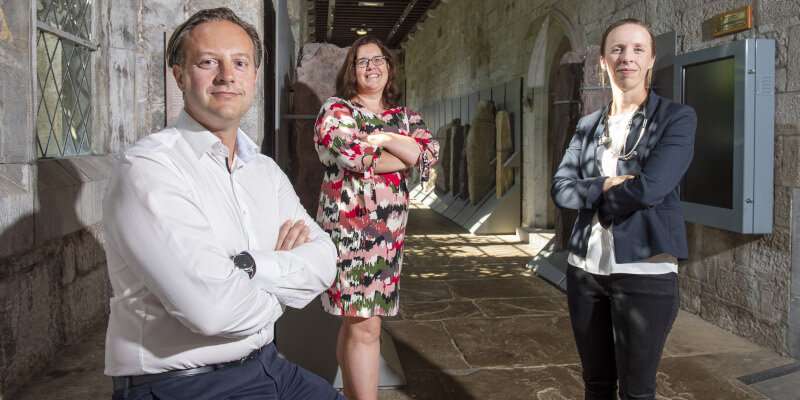Nearly 90% of those living with long COVID have not returned to full health


Nearly 90% of those living with long COVID have not returned to their pre-COVID level of health, a new study finds.
The study of 988 participants conducted by APC Microbiome Ireland, an SFI research center based at University College Cork (UCC), in conjunction with Cork University Hospital (CUH) and long COVID Advocacy Ireland, provides greater insight into impact of long COVID on quality of life, mental health and physical health of people in Ireland. The study is published in HRB Open Research.
More than 2 out of 3 participants continue to experience fatigue, post-exertional malaise, palpitations, chest pain, stomach upset/nausea, memory problems, muscle pain or joint pain. The median number of long COVID symptoms reported was 8 for each person, highlighting the substantial burden of this disease. The median reported time since the initial COVID-19 infection was 12 months.
Six out of every ten missed workdays
A high proportion of long COVID patients reported that they still have a moderate to severe limitation in their ability to carry out their usual daily activities. Nearly 4 of 10 people were severely limited in their ability to work and 6 of every 10 have missed workdays (at some stage) due to their long COVID symptoms. 16% of respondents were unable to work at the time of the survey due to long COVID and were receiving social welfare supports.
The survey was produced in a researcher-clinician-patient partnership involving Professor Liam O’Mahony, APC Principal Investigator and UCC Professor of Immunology, Dr. Corinna Sadlier, Consultant in Infectious Diseases at CUH, and Ms. Tanja Buwalda, long COVID sufferer and representative of “Llong COVID Advocacy Ireland.”
This working group included patient engagement to ensure the survey would impact patients in a targeted and meaningful way, and ultimately help inform care pathways in the treatment of long COVID.
SARS-CoV-2 infection not only impacts the lungs
Professor O’Mahony said, “This survey highlights that SARS-CoV-2 infection not only impacts the lungs but can have significant long-term effects on multiple organ systems following clearance of the acute SARS-CoV-2 infection in many Irish people who were otherwise healthy previously. The reasons why some people develop long COVID, and others do not, are still unclear. While many different biological mechanisms have been proposed, we are focusing on the role of the immune system and the microbiome in these complicated disease processes.
“The majority of people surveyed had a mild-moderate severity of initial COVID-19 disease and the majority did not require hospital treatment at that time. A wide range of body systems are impacted by long COVID, as demonstrated by systemic, respiratory, cardiovascular, gastrointestinal, neuropsychiatric or musculoskeletal symptoms. Fatigue is the single most frequent symptom reported,” Professor O’Mahony continued.
Dr. Corinna Sadlier said, “The study demonstrates the significant and wide-ranging impacts long COVID is having not only on physical health, but also on ability to carry out usual daily activities, return to employment and overall quality of life. Another interesting aspect of this research are the clusters of multisystem symptoms or long COVID phenotypes that are emerging. While there remains a huge amount to learn about post COVID illness, there is a clear and compelling need for dedicated cross disciplinary specialist services to treat long COVID patients. In parallel, research is urgently required to identify mechanisms underlying long COVID symptoms as well as effective treatments to improve outcomes for this patient group.”
Ms. Tanja Buwalda said, “This study clearly shows that long COVID demands urgent national attention from the government and health system. Thousands of people are suffering needlessly because they do not have access to multidisciplinary clinics or effective treatments. With recent waves of new infections, we should expect even more long COVID illnesses to arise. We feel that tackling this large and ongoing problem requires a collaborative approach.”
Source: Read Full Article